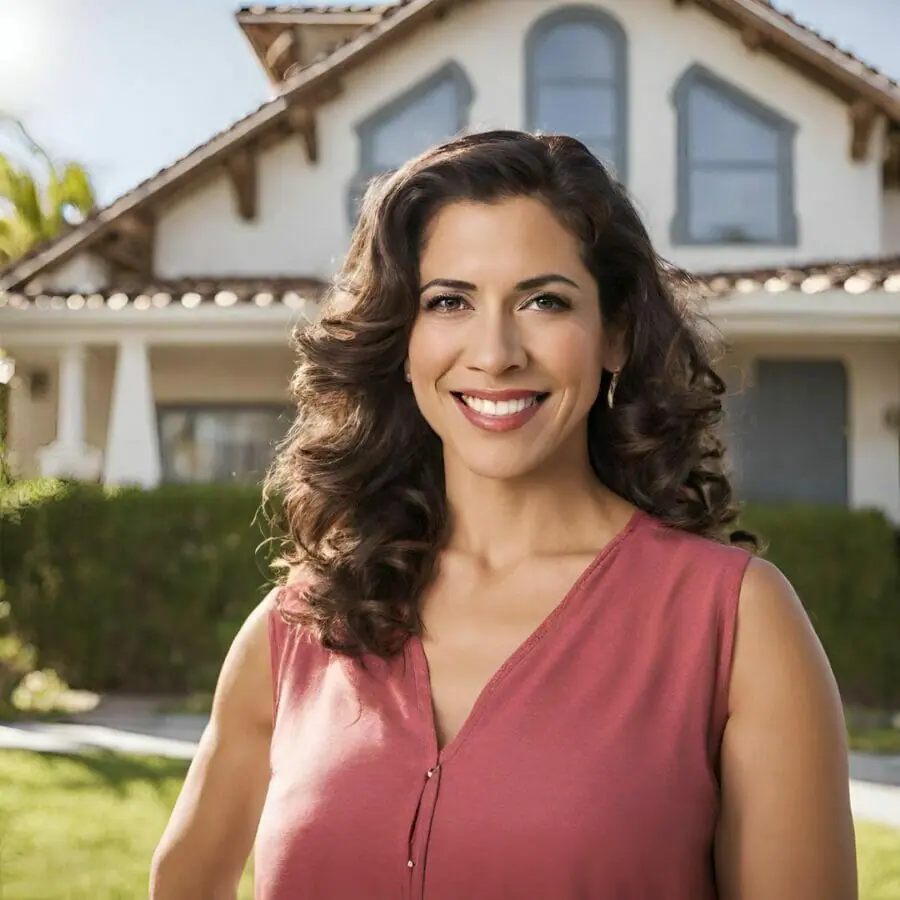Embarking on the adventure of purchasing a home in Costa Rica as a member of the LGBT community is a journey rich with unique opportunities and considerations. This passionate Central American country, known for its breathtaking landscapes and progressive social climate, offers a mosaic of experiences for queer individuals seeking a place to call home.
Costa Rica, a pioneering force in championing LGBT rights within Latin America, unveils a real estate panorama that mirrors its vibrant and diverse natural splendor. In this kaleidoscopic realm, buying a house in LGBT Costa Rica becomes not just a transaction, but a journey into a world where inclusivity and nature’s wonders coalesce.
However, understanding the nuances of its varied regions is key. From the bustling, cosmopolitan vibes of San José to the tranquil, beachside serenity of Guanacaste, each area offers a different slice of life. Knowing which area resonates with your lifestyle and values is crucial in making a decision that feels right.
As an LGBT homebuyer in Costa Rica, it’s essential to grasp the legal landscape and social attitudes that vary across regions. While the nation is celebrated for its strides in LGBT rights, including the legalization of same-sex marriage, regional attitudes can differ significantly.
This guide offers an in-depth analysis of these variations, providing you with the knowledge to choose a community where you’ll feel welcomed and accepted.
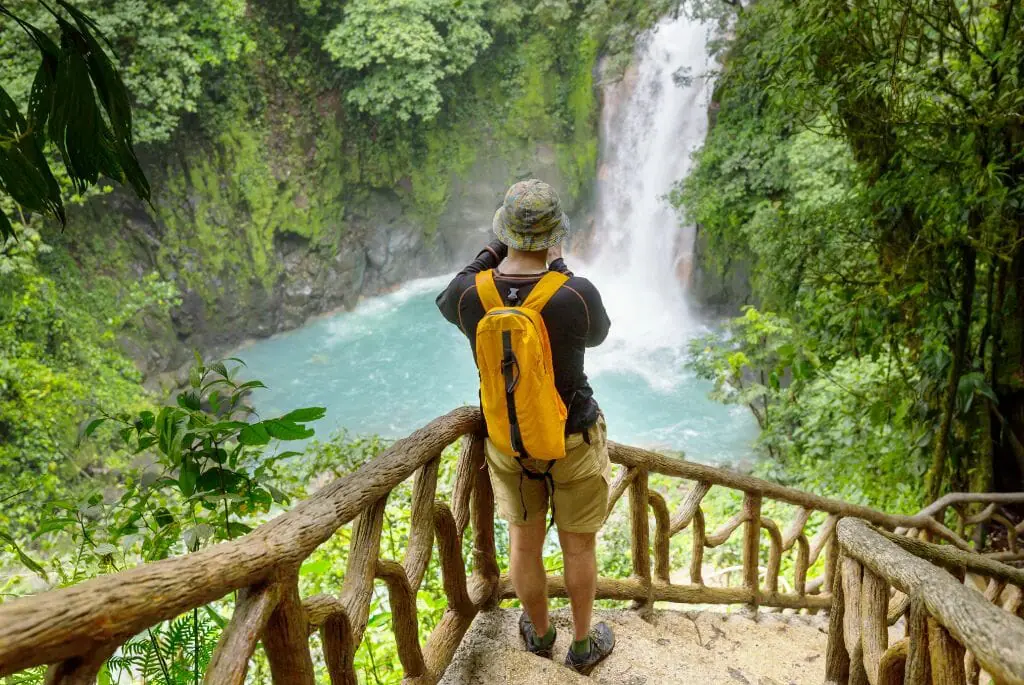
Beyond the legal aspects, understanding the social fabric of different Costa Rican locales is vital. Some areas are renowned for their fiery LGBT communities and social scenes, offering a plethora of bars, clubs, and cultural events, while others are more low-key, appealing to those seeking a peaceful, inclusive community.
The importance of safety and inclusivity cannot be overstated. Recent statistics from LGBT advocacy groups in Costa Rica highlight these as top priorities among queer homebuyers. This guide delves into these aspects, offering insights into neighborhoods known for their safety and LGBT-friendly atmosphere.
For those looking to stay connected with family and friends, or wishing to be near LGBT-centric amenities and businesses, local knowledge is invaluable. This guide offers insider tips on the most welcoming and inclusive neighborhoods, ensuring you find a place not just to live, but to thrive.
The role of a realtor in this process is more than just a facilitator; it’s about partnership and understanding. Choosing a realtor in Costa Rica who is either a part of the LGBT community or a staunch ally can significantly enhance your home-buying experience. They bring empathy, understanding, and a shared perspective to the table, ensuring your journey is not just smooth, but deeply personal and respectful.

These realtors transcend the mere facilitation of transactions. They are connoisseurs of tailored guidance, champions of your aspirations, and navigators through the intricate labyrinth of the real estate market, employing a refined and discerning approach.
Their profound understanding of local legal frameworks and a rich tapestry of connections with LGBT-friendly experts guarantees that your rights are not just acknowledged, but celebrated. In this context, buying a house in LGBT Costa Rica transforms into an empowering odyssey, ensuring every step resonates with respect and inclusivity.
When considering purchasing a home in Costa Rica, think about the lifestyle you envision. Do you dream of waking up to the sound of waves on the Pacific coast, or do you prefer the energetic pulse of a city? Perhaps the lush, serene environment of the cloud forests appeals more to your sensibilities? This guide covers these choices in detail, offering a comprehensive overview of what each region has to offer.
Let’s not forget the financial aspects of buying a home. This guide provides an overview of the Costa Rican real estate market, discussing trends, pricing, and investment opportunities. It also covers the legal procedures and documentation required, ensuring you are well-prepared for every step of the process.
In conclusion, purchasing a home in Costa Rica as an LGBT individual is an exciting and deeply personal journey. It’s about finding a place where you can express your true self, in a community that respects and embraces diversity. With the right guidance, information, and support, this journey can lead you to a home that’s not just a physical space, but a sanctuary where your life and identity are celebrated.
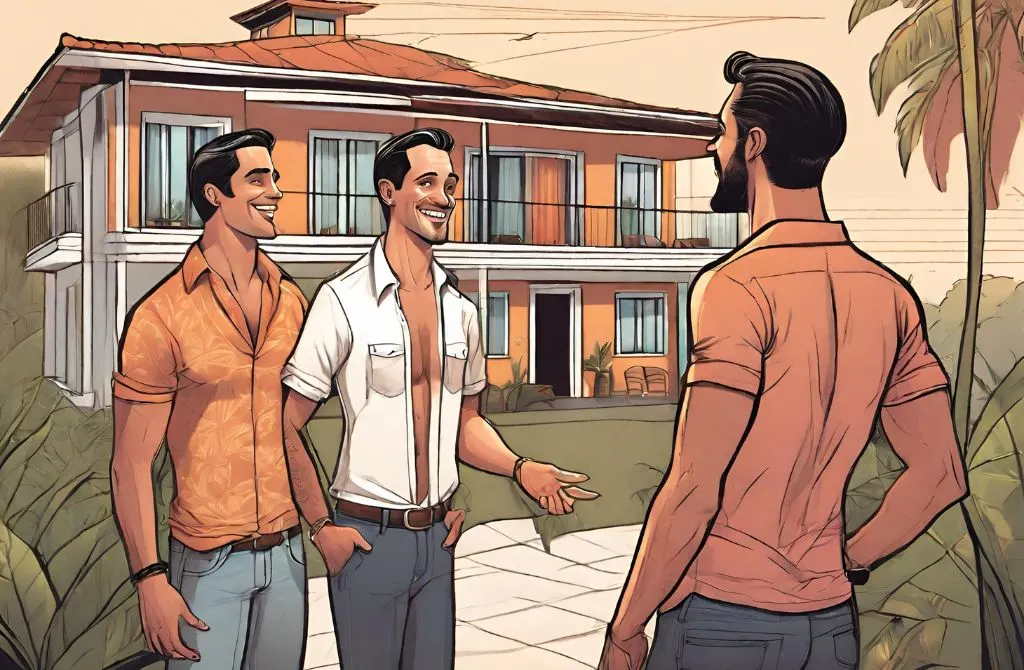
Embarking on a New Chapter: A LGBT Costa Rica Real Estate Journey!
Costa Rica, with its lush landscapes and rich cultural tapestry, offers a diverse and evolving real estate market for LGBT homebuyers. This market ranges from areas of high inclusivity and visible queer communities to more discreet, traditional locales. Local LGBT organizations and real estate professionals in Costa Rica are pivotal in navigating this terrain, providing vital insights into LGBT homeownership. They highlight the community’s strides while acknowledging ongoing challenges.
Although detailed statistics on LGBT homeownership in Costa Rica are limited, there’s a clear growth trend, with more LGBT individuals and couples choosing Costa Rica as their home. This rise sheds light on the unique challenges LGBT buyers face in the Costa Rican real estate market.
Costa Rica’s Real Estate Landscape for LGBT Buyers:
Costa Rica’s real estate market is distinct, especially when contrasted with the USA. One notable aspect is the legal framework governing property transactions, which, while straightforward, demands a comprehensive understanding of local regulations.
Unlike in the USA, where property laws are more uniform, Costa Rica’s laws require a nuanced understanding, especially for foreign LGBT buyers.
Key Trends in LGBT-Friendly Locations Across Costa Rica:
In Costa Rica, cities like San José and Manuel Antonio are recognized for their LGBT-friendly atmosphere. These areas are known for vigorous LGBT scenes, supportive environments, and an abundance of LGBT-owned businesses and organizations. They represent the epitome of queer-friendly living in Costa Rica, offering numerous resources and community spaces.
Beyond these popular cities, there’s a growing trend of LGBT individuals and couples exploring living options in smaller, less urbanized areas. These locations are increasingly attractive for their affordability and quieter lifestyle, broadening the range of choices for LGBT people in Costa Rica.
Identifying LGBT-Welcoming Cities and Communities in Costa Rica:
Embarking on the quest for an LGBT-friendly haven in Costa Rica is an adventure that demands meticulous research, insightful local knowledge, and a keen sense of the cultural tapestry. Aspiring homeowners must plunge into the depths of factors like legal safeguards, where Costa Rica shines as a beacon of progressiveness, eclipsing many regions in the USA.
The nation’s historic embrace of same-sex marriage in 2020 stands as a testament to its evolving journey towards LGBT acceptance. In this vibrant and forward-thinking environment, buying a house in LGBT Costa Rica isn’t just a pursuit of property, but a celebration of belonging and progressive living.
Engaging with local LGBT groups and networks is invaluable for gaining firsthand knowledge. Online forums and resources also serve as platforms for shared experiences and advice. Additionally, partnering with a queer or LGBT-friendly realtor in Costa Rica is crucial. These professionals offer specialized knowledge and ensure that buyers are equipped with the most current and relevant information for informed decision-making.

Securing Your Ally: Partnering with an LGBT-Friendly Realtor in Costa Rica
For LGBT homebuyers in Costa Rica, navigating the real estate market requires not just a discerning eye for valuable opportunities but also a knowledgeable and trustworthy guide. In Costa Rica’s diverse real estate landscape, the role of a realtor who understands and empathizes with the LGBT community is crucial.
These professionals offer a combination of market expertise and an intimate understanding of the unique challenges queer individuals may face.
Why Choosing An LGBT Or Ally Realtor In Costa Rica Is Essential
In Costa Rica, where societal attitudes towards LGBT rights have been progressively evolving, including the legalization of same-sex marriage in 2020, the need for an informed realtor is more pronounced. An LGBT or ally realtor in Costa Rica is not just a strategic choice but a protective measure against potential discrimination, which, while lessening, still exists. These realtors act as advocates for equality and fairness, ensuring a respectful and inclusive property transaction process.
Costa Rican realtors, whether members of the LGBT community or steadfast allies, transcend the conventional role of mere transaction facilitators. They emerge as luminaries within local queer spheres, deeply cognizant of the critical need to cultivate and nurture environments that are not only safe but radiantly inclusive. Their influence stretches far beyond the confines of a sale, guiding clients towards enclaves where they can flourish and bask in the warmth of acceptance.
In this context, buying a house in LGBT Costa Rica is more than a property acquisition; it’s an expedition towards finding a community where you’re not just recognized, but truly celebrated.
Steps to Finding a Queer-Friendly Realtor in Costa Rica
- Utilize LGBT Real Estate Networks: In Costa Rica, there are platforms specifically designed to connect LGBT buyers with queer-friendly agents. These networks are valuable resources for finding professionals experienced in addressing the unique needs of LGBT clients.
- Engage with Local Communities: Costa Rica’s local LGBT organizations and events can be great sources for realtor recommendations. Participation in these communities offers insights and connections to trusted professionals.
- Evaluate Community Involvement: A realtor’s involvement in Costa Rican LGBT causes is a strong indicator of their commitment. Costa Rica’s evolving landscape for LGBT rights provides numerous opportunities for realtors to engage in advocacy and community building.
Questions To Assess A Realtor’s LGBT-Friendliness In Costa Rica
When assessing a realtor’s commitment to the LGBT community in Costa Rica, consider the following:
- Experience with LGBT Clients: Ask about their track record with LGBT buyers and request references. This provides insight into their understanding and sensitivity to LGBT-specific concerns.
- Knowledge of LGBT-Friendly Areas: In Costa Rica, certain regions are more LGBT-friendly than others. A knowledgeable realtor should be able to guide clients to these areas, providing information about local LGBT resources, community events, and the overall social climate.
- Approach to Challenges: Inquire about how they navigate potential obstacles, such as discrimination or bias in the property market. Their strategies and experiences can reveal their level of dedication and expertise in ensuring a smooth and respectful buying process for LGBT clients.
- Understanding of Legal Protections: Given Costa Rica’s progressive stance on LGBT rights, a well-informed realtor should be versed in the legal protections available to LGBT individuals, including those pertaining to property ownership and anti-discrimination laws. This knowledge is critical in providing comprehensive support to LGBT buyers.
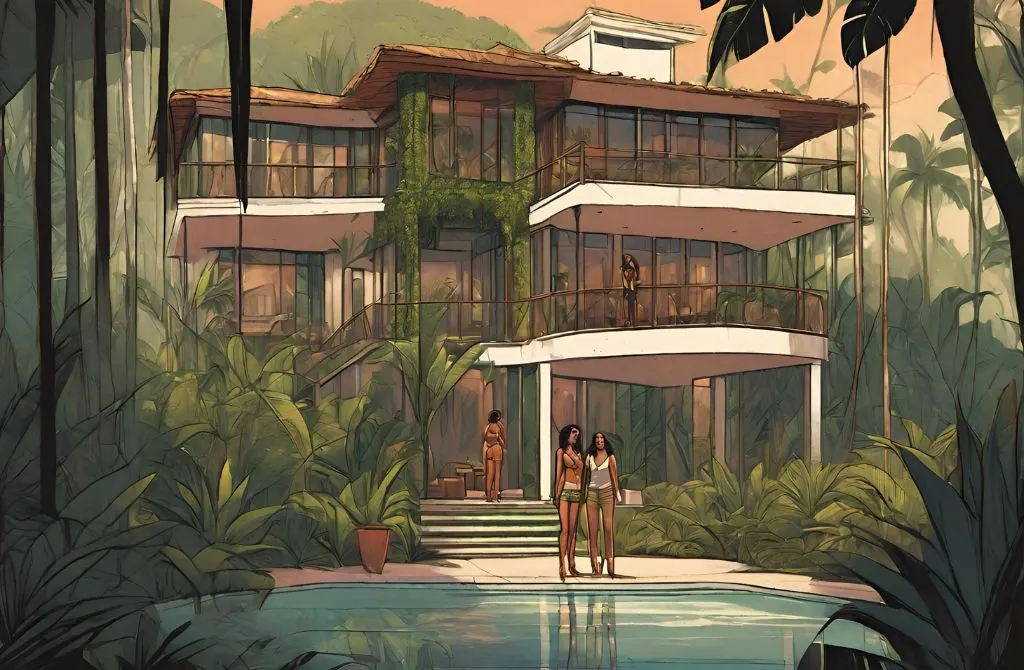
Confronting Legal and Social Challenges: Addressing Discrimination and Bias in Costa Rica
In the realm of Costa Rican real estate, LGBT individuals face a complex environment where legal progressiveness intersects with varied societal attitudes. Despite Costa Rica’s position as a forward-thinking country in Central America on LGBT issues, nuances in local cultures and attitudes can significantly impact the property acquisition experience for LGBT buyers.
Understanding LGBT Rights in Costa Rican Real Estate
Costa Rica has shown commendable advancement in LGBT rights, notably with the historic move to legalize same-sex marriage in 2020, setting a progressive tone in the region. The nation has established legal protections against discrimination on the basis of sexual orientation and gender identity. Yet, the actual implementation of these protections can be uneven across different Costa Rican regions.
In urban areas, particularly in the capital city of San José, there’s a more pronounced acceptance and openness toward the LGBT community. These areas feature discernible LGBT-friendly neighborhoods and a visible queer culture. However, in contrast, rural regions may still hold conservative views that can subtly influence real estate transactions, manifesting as discreet discrimination.
The role of a realtor who is not only skilled in their profession but also culturally sensitive to the needs of LGBT homebuyers becomes critical in this landscape. Such professionals are adept at guiding their clients through the varying social and legal terrains of Costa Rica, steering them towards areas known for inclusivity and advising on how to approach potential challenges in less open-minded locales.
Strategies for Navigating the Costa Rican Real Estate Market as an LGBT Buyer
LGBT buyers in Costa Rica should embark on their property search armed with a comprehensive understanding of their legal rights. Being informed about the specific laws that protect against discrimination in housing and real estate is essential. Furthermore, maintaining a meticulous record of all aspects of the property transaction process is crucial. This documentation can serve as a vital resource in instances where one might face discrimination and need to pursue legal recourse.
Staying alert to any signs of bias or discrimination during the property buying process is another key aspect. An LGBT-friendly or ally realtor is invaluable in this regard. Such a realtor can recognize and confront discriminatory practices, providing advice on how to handle these challenges. They can also assist in seeking legal solutions if discrimination occurs.
Building a Robust Support Network
For LGBT homebuyers in Costa Rica, building a support network can greatly enhance the home-buying experience. In urban centers, engaging with local LGBT organizations can offer insights into LGBT-friendly neighborhoods and services. These organizations often serve as a hub for community connection and support, providing a network that extends beyond mere property buying.
In more rural or conservative areas of Costa Rica, where LGBT organizations may not be as prominent, online communities and resources become a lifeline. These digital platforms can offer advice, support, and information, helping LGBT individuals navigate the complexities of the real estate market in these regions.
Navigating the Costa Rican real estate market as an LGBT individual requires a delicate balance of legal knowledge and sensitivity to the social climate. Partnering with an experienced, culturally aware realtor can make a significant difference, helping LGBT homebuyers find not just a property, but a community where they feel safe and welcomed.

Financing Your Dream Home in Costa Rica: Overcoming Financial Challenges as a Foreigner
In Costa Rica, foreign LGBT homebuyers encounter specific financial challenges and considerations unique to international real estate transactions.
These challenges, compounded by potential bias and discrimination, make the support of a knowledgeable and queer-friendly realtor crucial. Such realtors are not just facilitators but also allies, offering tailored insights and resources for the LGBT community.
Financial Considerations for Foreign LGBT Buyers in Costa Rica
Foreign LGBT buyers may face several financial hurdles when purchasing property in Costa Rica. These include the complexity of securing financing as non-residents and managing exchange rate fluctuations. LGBT buyers may also have additional concerns, such as proving income or addressing credit issues, which can be compounded by experiences of job discrimination or financial instability due to their sexual orientation or gender identity.
Navigating the financial odyssey of buying a house in LGBT Costa Rica transforms into an art form for foreign LGBT buyers, thanks to innovative monetary strategies. Some harness the potential of developer financing schemes, while others ingeniously leverage assets and investments from their native lands. In this kaleidoscopic financial landscape, queer-friendly Costa Rican realtors become indispensable maestros.
They possess an intimate understanding of these distinct challenges and deftly orchestrate alternative financing solutions, ensuring that the dream of owning a home in this vibrant and inclusive paradise is not just a vision, but a splendid reality.
Navigating Financing Options in Costa Rica
Understanding and accessing mortgage and financing options in Costa Rica can be intricate for foreign buyers. Queer-friendly realtors play a key role in simplifying this process. They provide guidance on financial institutions in Costa Rica that are known for positive dealings with foreign clients and assist with mortgage applications to ensure fair and unbiased evaluations.
These realtors are also crucial in helping translate and interpret mortgage terms and conditions in Costa Rica, where legal and financial systems differ markedly from those in the USA and documents are predominantly in Spanish.
Understanding Property Rights and Estate Planning in Costa Rica
Purchasing property in Costa Rica as a foreigner does not involve the “fideicomiso” or bank trust system, as it is not required in Costa Rica. This contrasts with some other countries in the region and allows for more straightforward ownership rights for foreigners.
Estate planning and understanding property rights are key considerations for LGBT buyers in Costa Rica. A queer-friendly realtor can offer valuable advice in these areas, ensuring that investments are secure and rights are protected. This might include guidance on drafting wills in Costa Rica and navigating the implications of property co-ownership, especially relevant for protecting the rights and wishes of LGBT buyers and their partners.
In conclusion, financing a home in Costa Rica as a foreign LGBT buyer involves unique challenges. A queer-friendly realtor is an invaluable asset in this journey, providing the expertise, support, and resources necessary to navigate Costa Rica’s financial landscape, secure financing, and ensure the protection of the buyer’s investment and future.
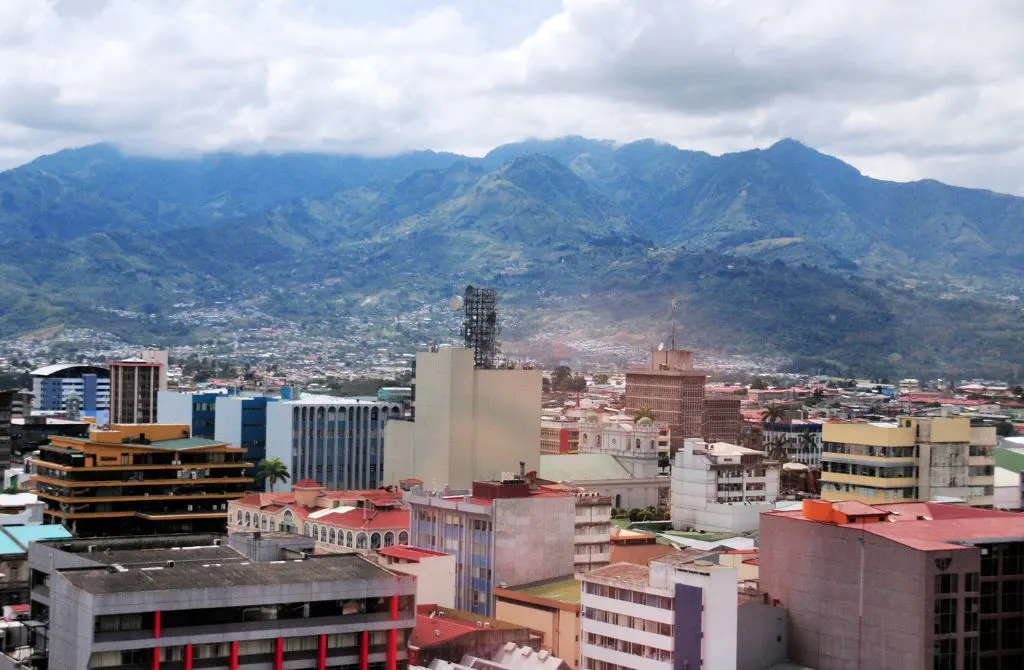
Sealing the Deal in Costa Rica: Understanding the Unique Closing Process with a Queer Realtor
The journey of buying a house in LGBT Costa Rica unfolds as a distinct and fascinating tapestry, markedly different from the pathways tread in the United States. Each step in this vibrant land is imbued with its own set of procedures, legal intricacies, and cultural nuances, essential for buyers to master.
This process is not just a transaction but a captivating exploration of Costa Rica’s unique way of embracing property acquisition, where understanding these differences becomes key to unlocking a new world of real estate possibilities.
Property Search and Offer Stage
In Costa Rica, property searches typically start with online listings or through local real estate agents. The market is diverse, offering everything from beachfront properties to mountain retreats. Foreigners enjoy the same property rights as Costa Rican citizens, albeit with some coastal restrictions. The process of making an offer in Costa Rica mirrors that in the U.S. to some extent, involving negotiations and a formal written agreement. However, the subsequent legal and due diligence processes in Costa Rica diverge significantly from U.S. practices.
In the United States, the property search also often begins online or with agents, and offers are made in writing, usually involving negotiations. Acceptance of an offer leads to the placement of an earnest money deposit, signifying the buyer’s commitment.
Due Diligence and Inspections
Due diligence in Costa Rica is a critical and often intricate process. It involves verifying the property title, ensuring no liens or encumbrances, and checking zoning and land use regulations. Professional home inspections, commonplace in the U.S., are less frequent in Costa Rica, though they are becoming more popular among foreign buyers.
In the U.S., due diligence includes a comprehensive property inspection, a title search to confirm the property is lien-free, and sometimes additional environmental or land use assessments, depending on the property’s location and type.
Closing Process
The closing process in Costa Rica significantly differs from that in the U.S. In Costa Rica, a public notary, who is also a licensed attorney, is integral to the transaction. They are responsible for drafting the transfer deed (escritura) and registering the sale in the National Registry. Closing costs in Costa Rica, including legal fees, transfer taxes, and other expenses, are generally higher as a percentage of the property value compared to the U.S.
In the United States, closing involves various parties like real estate agents, lawyers (in certain states), and a title or escrow company. The process concludes with the signing of multiple documents, including the deed, and the buyer covering closing costs, which include a range of fees and taxes.
Key Differences
- Legal Roles and Formalities: In Costa Rica, the notary/attorney plays a more comprehensive role in drafting and registering the property transfer, unlike in the U.S.
- Due Diligence: In Costa Rica, the focus is on verifying legal status and compliance. In contrast, the U.S. places equal emphasis on the physical condition of the property through inspections.
- Closing Costs: As a percentage of the property value, closing costs in Costa Rica can be higher than those in the U.S.
In summary, while there are similarities in the home buying processes of Costa Rica and the USA, significant differences exist in the roles of legal professionals, due diligence practices, and the structure of closing costs. For buyers, especially those unfamiliar with Costa Rican procedures, understanding these differences is crucial for a successful and smooth property acquisition.
For a comprehensive understanding of Costa Rican property laws and the intricacies of buying real estate in the country, the guide “Understanding Costa Rica Property Laws: A Comprehensive Guide” can be an invaluable resource. This detailed guide covers essential aspects such as land ownership regulations, property title requirements, and the role of the National Registry in Costa Rica. It provides insights into different types of land ownership, emphasizes the importance of conducting due diligence during the buying process, and discusses the property registration process in detail. The guide also explores legal protection for real estate investors and available options for dispute resolution, equipping readers with the knowledge needed to navigate the Costa Rican real estate landscape confidently.

Final Reflections on Navigating LGBT Homeownership in Costa Rica
Embarking on the journey of purchasing a home in Costa Rica as an LGBT individual is an exciting and affirming experience. It’s not just about engaging in real estate transactions; it’s about creating a haven within a community that respects and celebrates who you are.
This process is elevated by the colorful tapestry of LGBT culture and the delightful diversity of Costa Rica, making it about more than finding a property—it’s about establishing a true home, a sanctuary of acceptance and joy.
The Unique Experience of Buying a Home in LGBT-Friendly Costa Rica
Costa Rica’s LGBT real estate landscape is as varied and welcoming as its culture. It offers environments to suit different preferences and lifestyles. From the dynamic and inclusive ambiance of places like San José, renowned for its vibrant LGBT community, to serene beach towns known for their laid-back and accepting character, Costa Rica is dotted with supportive enclaves.
Investing in a Costa Rican home is not just a financial decision; it’s a step towards a life of authenticity, in a society that cherishes diversity and inclusion.
The Role of an LGBT-Friendly Realtor in Costa Rica
Partnering with an LGBT-friendly realtor in Costa Rica is key. They do more than guide you through the transaction process; they offer insights into the local LGBT community, helping to find neighborhoods and networks that resonate with your identity.
These realtors are more than agents; they are allies who understand the unique needs of LGBT homebuyers, committed to finding you not just a house, but a home where you can thrive.
Starting Your Home Buying Adventure in Costa Rica
Your home buying journey in Costa Rica begins with connecting with the right realtor, someone who not only understands your needs but also respects your identity and has the expertise to navigate the Costa Rican real estate market.
Utilize local LGBT resources and national advocacy groups to arm yourself with knowledge. Understanding the legal and financial nuances of buying a home in Costa Rica is crucial. Surround yourself with a supportive network to guide you through this exciting journey.
Purchasing a home in LGBT-friendly Costa Rica transcends a mere financial decision; it’s a step towards being part of a community that supports and celebrates you. With the right realtor and a wealth of resources, you’re poised to make a decision that is not just smart but also heartening and fulfilling.
Welcome to your new chapter in Costa Rica, where your home awaits with open arms.
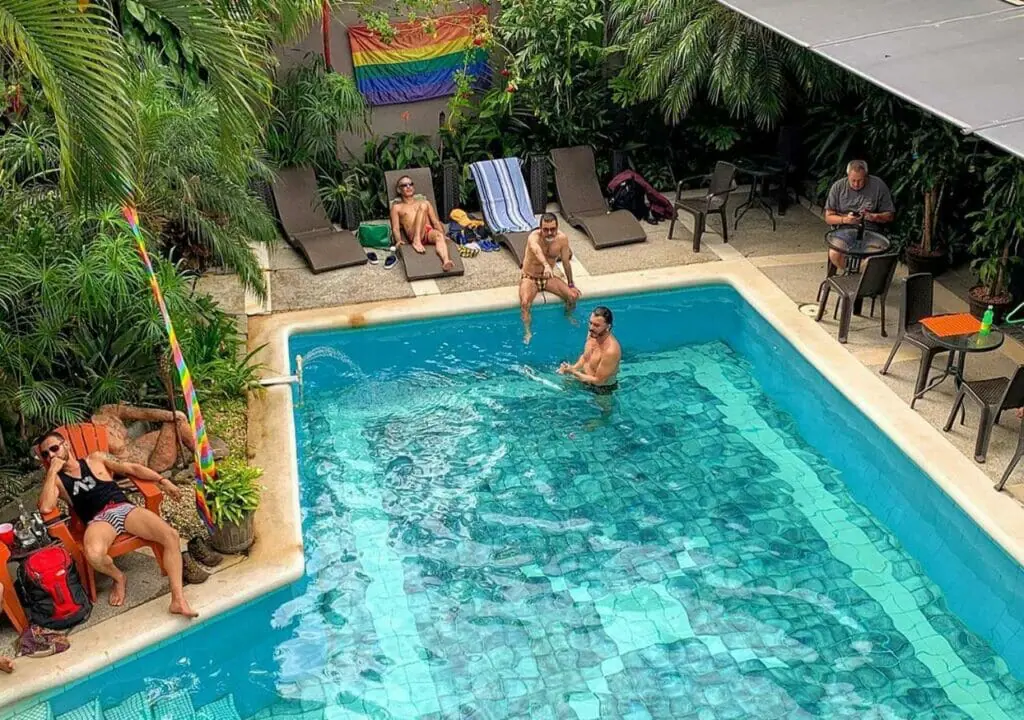
FAQ About Buying A House In LGBT Costa Rica
Why is it important to find an LGBT-friendly realtor when buying a house in Costa Rica?
An LGBT-friendly realtor in Costa Rica is crucial for LGBT individuals because they offer more than property expertise. They understand the unique experiences and challenges LGBT individuals might face in the housing market. They provide guidance and advocacy, ensuring a respectful, inclusive, and smooth home buying experience, tailored to the needs and concerns of LGBT clients.
Are there LGBT-friendly areas in Costa Rica for homebuyers?
Yes, Costa Rica boasts several areas known for their LGBT-friendly atmosphere. Cities like San José are recognized for their welcoming communities, vibrant LGBT social scenes, and inclusive environment. These areas not only offer a comfortable living space but also a sense of belonging and community, making them ideal for LGBT homebuyers. Researching local neighborhoods and staying informed about market trends is crucial in finding a location that aligns with your lifestyle and comfort.
How can LGBT homebuyers in Costa Rica protect their rights during the purchasing process?
Ensuring your rights are protected as an LGBT homebuyer in Costa Rica involves working closely with an experienced, LGBT-friendly realtor. These professionals are knowledgeable about the legal protections available in Costa Rica and will advocate for your rights throughout the buying process. Additionally, being well-informed and proactive is essential to safeguard your interests.
What are some specific financial considerations for LGBT homebuyers in Costa Rica?
LGBT homebuyers in Costa Rica may face unique financial considerations. It’s important to seek advice on LGBT-friendly financing options, understand the tax implications specific to Costa Rica, and consider future estate planning, especially for protecting your partner or family. Your realtor can provide personalized financial guidance and connect you with resources to help navigate these aspects.
Where can LGBT homebuyers in Costa Rica find additional resources and support?
For additional resources and support, LGBT homebuyers in Costa Rica can tap into networks of LGBT-friendly real estate professionals. These agents are experienced in addressing the unique needs of the LGBT community in Costa Rica and are committed to ensuring a positive real estate experience. They can assist with buying, selling, or relocating, providing expert representation and market analysis. These networks offer a supportive and knowledgeable guide through every step of the real estate process.



